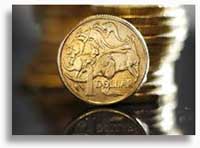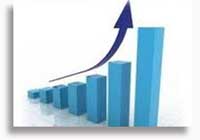STATISTICIAN
Introduction
Statistics is a mathematical science which is pertaining mostly to the collection, analysis, interpretation or explanation, and presentation of data. The Department of Statistics mostly involves in research, teaching, and statistical consulting for the entire University. Because of all the activities, the collaborative work with other disciplines and areas give graduate students a wide range of opportunities to work with individuals who are involved and to learn practical applications of statistical principles from direct experience. Statisticians usually collect, verify and interpret data and use the results to solve problems in a wide variety of fields.
The services of a statistician are mainly required in every field right from government offices to international sporting events. The job of a statistician is usually not out of the world, but it is something which affects each one of us in one way or the other. Different areas and fields of statistics are crime statistics, census statistics, ecological statistics, medical statistics, statistics on job-seekers, on education, film statistics, cricket statistics, oil statistics, market statistics, accident statistics, labor statistics, population statistics, election statistics, district-city-state statistics, tourism statistics, etc. All such areas require both the analytical brain and comprehending ability of a statistician to interpret numerical data and explain to the common public what the numbers mean and how it can be beneficial to the common man.
Educational Qualifications
The minimum educational qualification which is essential for this kind of field is a bachelor's degree with a major in statistics or mathematics. A Master's degree or Ph.D. is very much essential and often recommended or required for higher-level positions. B.Sc and M.Sc Statistic courses are today available in most universities across India. The duration of a normal undergraduate programme is 3 years and that of post graduate course is 2 years.Candidates who are willing to apply for Undergraduate course in Statistics should have been passed 10+2 or equivalent examination securing
a minimum of 50% marks in the aggregate in the subjects Physics, Maths plus any one of the following :- Chemistry, Statistics, Computer Science. For admission to M.Sc courses, students who have passed B.Sc. /B.A should have Mathematics / Statistics as one of the subjects, or has passed B. Sc in Computer Science with minimum 50 % marks in aggregate, are considered eligible. Some Universities and Institutes usually conduct specific entrance tests to gauge the aptitude of the aspirants. These are only general information regarding the basic eligibility criteria and it would be good if the aspirants check with the concerned institutions and universities regarding their admission criteria and procedure.
Personal Skills
Statisticians must have a very good reasoning ability. Persistence Good Mathematical aptitude is needed and they should be able to reason logically. Ought to be curious and should possess a disciplined mind. A very good knowledge of computer, speaking and writing skills with Intellectual creativity, patience and persistence, attention to details are a must. Statisticians need to be flexible and have a curious and disciplined mind. It is very important to have a good background in computers as statisticians use computers a lot. It is imperative that those interested in making a career in this field have good verbal and writing skills. Besides they should also have intellectual creativity, patience and persistence, attention to detail, problem-solving skills, logic, and the ability to take decisions independently.
Job Prospects for Statistician
Statisticians can find employment in public sector organizations, financial institutions and major corporate conglomerates. There are even opportunities in private companies. Candidates also have the option of even appearing for the Indian Statistical Services, Indian Economic Services as well as Civil Services exams. Colleges and Universities employ the statisticians for teaching, statistical research, and consulting because statistical specialists are employed in so many work areas. Specialists who use statistics often have different professional designations like econometrician, bio statistician, research analyst, biometrician, epidemiologist, etc.

Working condition of statistician is not tough. Statisticians usually work regular hours in comfortable offices. Some statisticians have to make numerous visits to give advice to people. Some have to travel to set up surveys or gather data. Others have a lot of different duties. These include things such as setting up experiments and doing fieldwork. Some teach and do research. The minimum educational qualification which is required in this field is a bachelor's degree with a major in statistics or mathematics. A Master's degree or Ph.D. is very much helpful and often recommended or required for higher-level positions. A bachelor's degree with a major in related field such as economics or natural science and a minor in statistics is preferred for some jobs. A combination of statistical skills with other subjects such as economics, operational research, computer science, business administration can give one a competitive advantage while seeking employment. Opportunities usually in industrial research require the candidate to have a master's degree and several years of experience. A high level of specialized training has to be obtained in order to be well placed in industry.
The various fields in which statisticians work are:
Statistician
|
Surveys: are one who collect information from
very much carefully specified sample and results
of which expand to an entire population.
|
|
Surveys may have been conducted on a range of issues
like most popular political candidate during elections,
or issues related to the general public etc.
|
|
Government Operations: Statisticians are the one
how are working with the government departments
who conduct experiments on consumer prices,
fluctuations in the economy, employment patterns,
population trends etc and aid in the development
of public policy and legislations.
|
|
Scientific Research:Statisticians usually work in
tandem with other scientists to gauge the feasibility
of various experiments.
|
|
Those working as Wildlife statisticians help to collect
data on the various animal populations and try to
design strategies to protect endangered species.
|
|
While others may work with environmental engineers
and scientists to work out problems and device solutions
to deal with the earth's environmental problems.
|
|
Colleges and Universities need statisticians for
teaching, statistical research, and consulting.
|
|
Academic and research statisticians are concerned with
the training of students and statistical research
in a chosen specialized field.
|
|
Business : Statisticians predict the demand
for products and services.
|
|
They may also manage assets and liabilities, determining
the risks and returns of certain investments.
|
|
Industry : Statisticians are involved in checking
the quality of items manufactured in a facility,
in product development and improvement and marketing.
|
|
In addition to product development and testing, they are
also involved in deciding the products to manufacture,
how much to charge for them, and to whom
the products should be marketed.
|
|
Sports statisticians: Sports statisticians collect
and analyze sports data like cricket scores,
hockey scores, tennis scores etc along with
other historical information that commentators
refer to when reporting games.
|
|
Such statisticians work mostly for sports teams,
associations, private sports statistic bureaus,
sports channels, media etc.
|
|
Statistical skills along with a skill set involving sports
studies, communications and journalism or public
relations equip an aspirant to succeed in this field.
|
|
Medical Statistician:Statistics is central for
most of the medical research.
|
|
Medical statisticians usually help doctors and other
medical professionals with their work.
|
|
The job involves monitoring and surveillance of diseases
and health pattern of the sample under study.
|
|
It involves establishing the cause of disease or the factors
associated with disease and death and thereby
its prevention.
|
|
It also involves evaluation of treatment methods
and effectiveness of medicines.
|
|
Indian Statistical Service (ISS)
This is for those who are interested in having a career with the government. Every year the UPSC conducts an All India Level Competitive Examination to fill vacancies in the Indian Statistical Service (ISS). For ISS, mostly Masters degree with Statistics or Mathematical Statistics or Applied Statistics from a recognized university is essential. The other reputed and well known organizations employing statisticians include Planning Commission, the National Council of Applied Economic Research (NCAER), Institute of Applied Manpower Research (IAMR), Indian Council of Medical Research (ICMR), statistical and economic bureaus, institutions associated with social-economic research, banks and public-sector undertakings.


